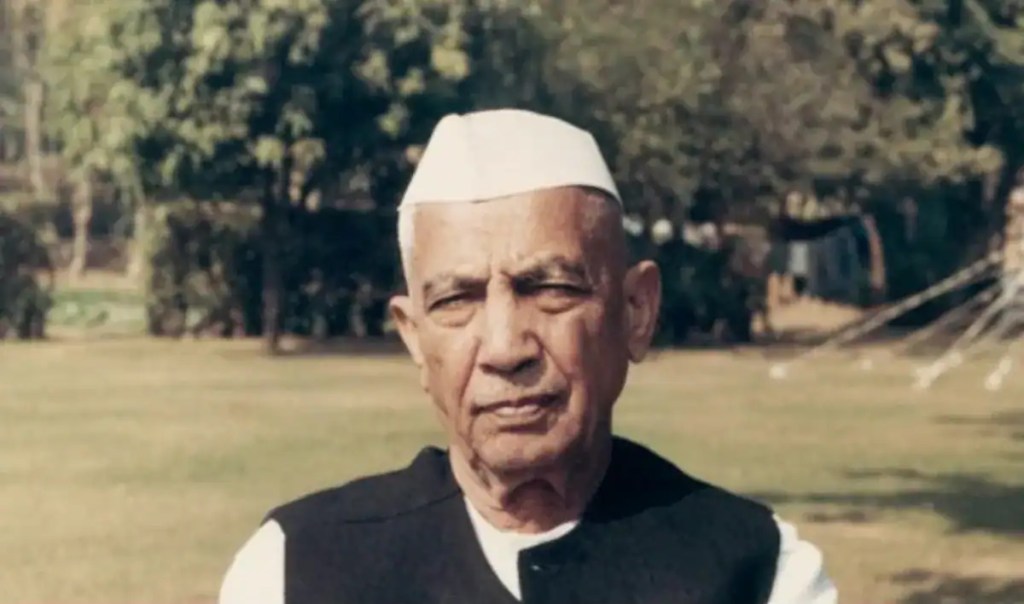Former Prime Minister and farmers’ leader Chaudhary Charan Singh has been conferred with the Bharat Ratna, India’s highest civilian award, posthumously.
The timing of Chaudhary Charan Singh being awarded the Bharat Ratna coincides with discussions about the possibility of the Rashtriya Lok Dal (RLD), led by Singh’s grandson Jayant Chaudhary, aligning with the BJP-led National Democratic Alliance (NDA). Despite lacking representation in the Lok Sabha, the RLD maintains a significant presence among farmers and the Jat community in western Uttar Pradesh. In response to the Prime Minister’s announcement, Jayant Chaudhary expressed his appreciation on X, stating, “Dil Jeet Liya (Have won my heart).”
Chaudhary Charan Singh was born in a family of farmers in Noorpur village in Uttar Pradesh’s Meerut district in 1902. He was first elected to the UP Assembly in 1937 from Chhaprauli. In June 1951, he became a state Cabinet minister — the first step towards his rise to the highest political office in the country.
Also Read: Bharat Ratna for PV Narasimha Rao, Chaudhary Charan Singh and MS Swaminathan
At the time, he was one of the Congress’s main leaders in UP. But dissatisfied with the direction of the party, Singh left the Congress to form the first non-Congress government in UP. He also formed the Bharatiya Kranti Dal (BKD). Singh served as UP Chief Minister twice — first, from April 3, 1967, to February 25, 1968; and second from February 18, 1970, to October 1, 1970. After that, he became more involved in national politics.
He played a pivotal role in passing the Debt Redemption Bill of 1939, offering substantial relief to rural debtors.
He has written several books and pamphlets including — ‘Abolition of Zamindari’, ‘Co-operative Farming X-rayed’, ‘India’s Poverty and its Solution’, ‘Peasant Proprietorship or Land to the Workers’ and ‘Prevention of Division of Holdings Below a Certain Minimum’.
Also Read: Meet ‘Bharat Ratna’ MS Swaminathan, man who pioneered green revolution
In 1974, he amalgamated his party with the Samyukta Socialist Party to establish the Bharatiya Lok Dal (BLD). This occurred during the tenure of Indira Gandhi as Prime Minister, who wielded considerable political influence and was almost invincible. Following Gandhi’s declaration of Emergency the subsequent year, Singh, along with other prominent Opposition figures, was jailed for a year.
Following the revocation of Emergency, the BLD emerged as a crucial component of the Morarji Desai-led Janata Party government that came to power in 1977. The Janata Party was formed that January year but merged with four Opposition parties — the Congress (Organisation), the BLD, the Jana Sangh, and the Socialist Party — after the elections in March. In the polls, the BLD got a majority, winning 295 of the 405 seats it contested. The Congress was routed, registering its worst performance since Independence as it won only 154 seats of the 492 it contested.
Singh became the Union Home Minister, holding the portfolio from March 24, 1977, to July 1, 1978. With discord in the party increasing, Desai appointed Singh the Deputy PM and Minister of Finance on January 24, 1979. He remained in the post till July 16.
Also Read: In a first, govt confers 5 Bharat Ratna Awards in single year
In 1979 after the Jana Sangh (BJP’s predecessor) pulled out of the 18-month old Morarji Desai-led Janata Party government. Congress decided to extend support to Chaudhary Charan Singh who took oath as the fifth prime minister on July 28, 1979. But before he could prove his majority in the Lok Sabha, Indira Gandhi withdrew support to his government and Singh resigned. He continued to remain as caretaker PM till January 14, 1980. In all, he spent 170 days in PM’s office office. Singh passed away in 1987.
Charan Singh will be joined by former Prime Minister PV Narasimha Rao and renowned agricultural scientist MS Swaminathan as recipients of the Bharat Ratna.


